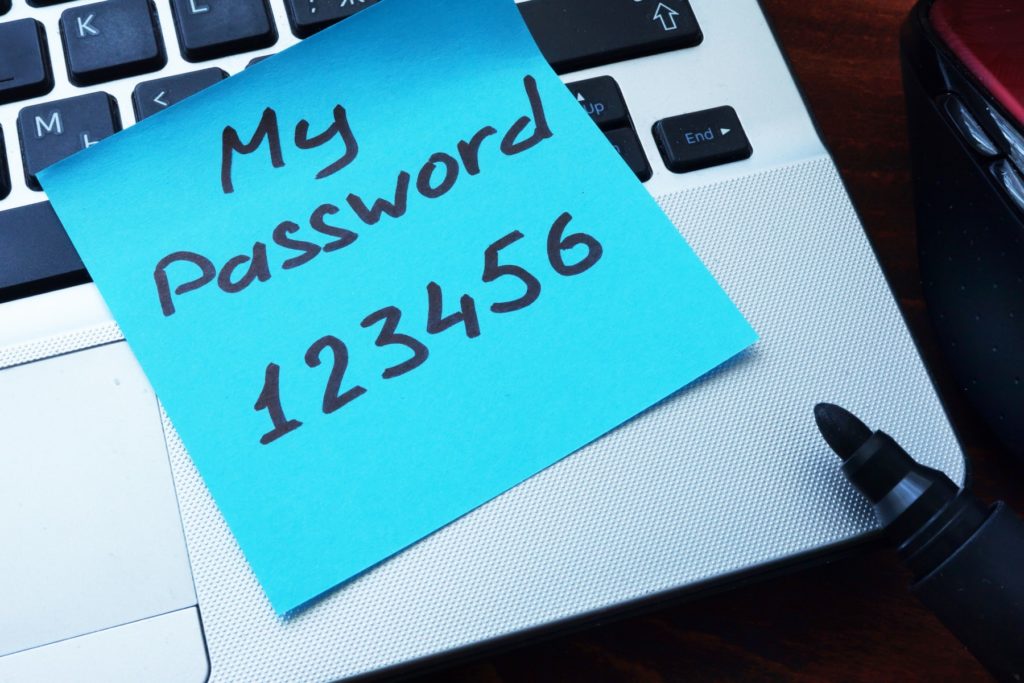Tip #1:
Don’t keep your passwords on a sheet of paper in sitting on your desk at home, or even carry it around with you. This makes it easy for people to log into your accounts, and use your accounts against you. This is especially important if you have bank information hooked up to any social media, or email accounts. Also, keeping your passwords in the Notepad App in your phone also compromises your account security. Anyone who goes looking through your phone could have access to your Facebook, Email, or Bank accounts.
Tip #2:
When you get that annoying notice that your password is too short (or missing a symbol) when you’re signing up for a website, it can be easy to roll your eyes at it. However, making your passwords decently long, and having them contain several numbers and symbols, as well as letters, is really important to your security. Creating a password without symbols or numbers, makes it easier for someone to get into your account and steal your information (or money).
It is also important to make sure that your passwords aren’t easy to guess. Don’t include your name in them, or your children’s names, or your partner’s names. It’s also best not to include your birth date in a password, or anything that someone could figure out just by looking you up on Facebook.
Tip #3:
It’s important that you change your passwords at least every six months. By changing your passwords, it makes your accounts more secure, and harder for someone to get into your information. If you don’t change your passwords, it gives hackers more time to figure out what your password is.
In conclusion, just be smart about protecting your personal information and your accounts!

